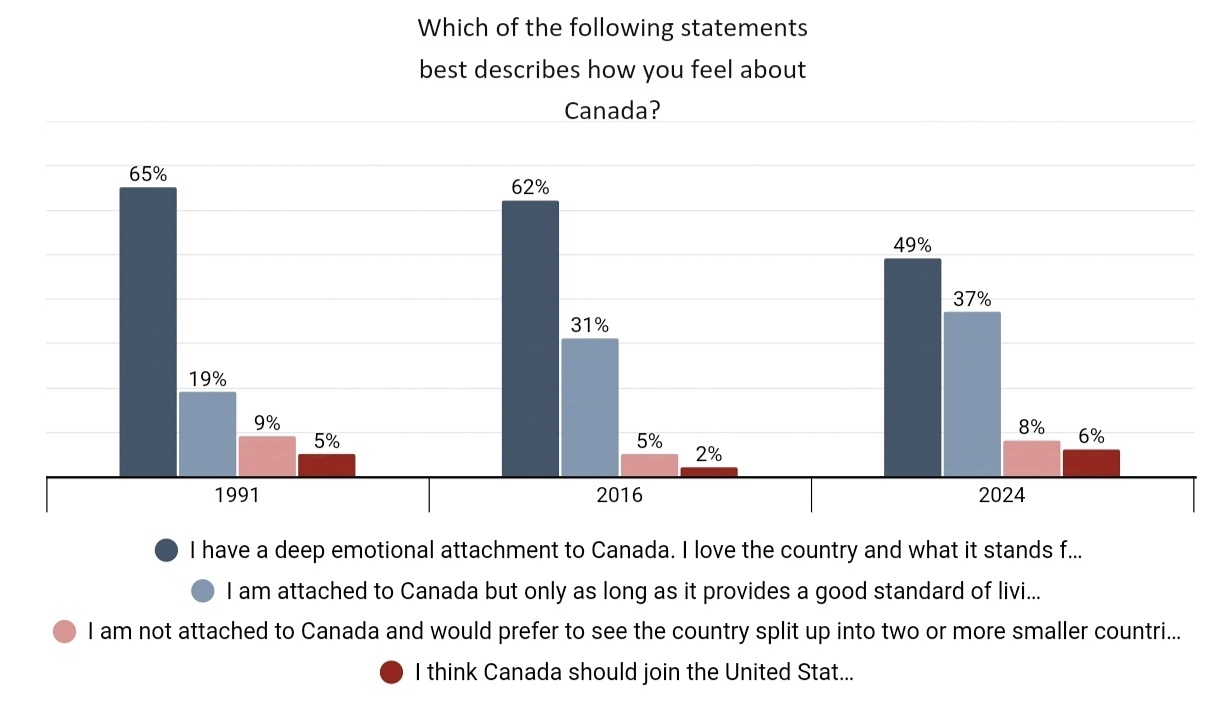Pride and attachment to country in Canada endure significant declines
Percentage saying they’re ‘very proud’ to be Canadian has dropped from 78% to 34% since 1985.
New data from the non-profit Angus Reid Institute find two broad trends underscoring these changes and signalling a challenge for national unity. In 2016, 62 per cent of Canadians said they had a deep emotional attachment to Canada. In 1991 that mark was three points higher (65%). Now in 2024 it is 13 points lower at 49 per cent.
Even more dramatic is a drop in a sense of pride among Canadians. In 1985, 78 per cent said they were “very proud” to be Canadian. This dropped to 52 per cent in 2016 and now by another 18 points to 34 per cent. The proportion who say they are either proud or very proud of their nationality has dropped precipitously from 79 per cent to 58 per cent over the past eight years.
- Women and men over the age of 54 are most likely to be proud of their nationality (71% and 68% respectively), while fewer than half of men under 35 (48%) and women of the same age (41%) say this.
- Income level correlates with pride. Those least likely to be proud of Canada are those with incomes below $25,000 (48% proud). Those most likely to be proud have a household income over $200,000 (65%)
- New Canadians, those living here for less than a decade, profess an attachment to Canada that hinges more on their being provided a good quality of living. Half (51%) say this, compared to 37 per cent among the general population and 33 per cent among immigrants who have living in Canada for more than 20 years.
https://angusreid.org/from-eh-to-meh-pride-and-attachment-to-country-in-canada/
Canada as the 51st State
- 13% of Canadians say that they would like Canada to become the 51st state of the United States. 82% say they would not like the idea.
- Conservative (21%) and People’s Party (25%) voters are more likely to be in favour of Canada joining the United States.
- Male 19 - 76 - 5
Female 7 - 87 - 6
